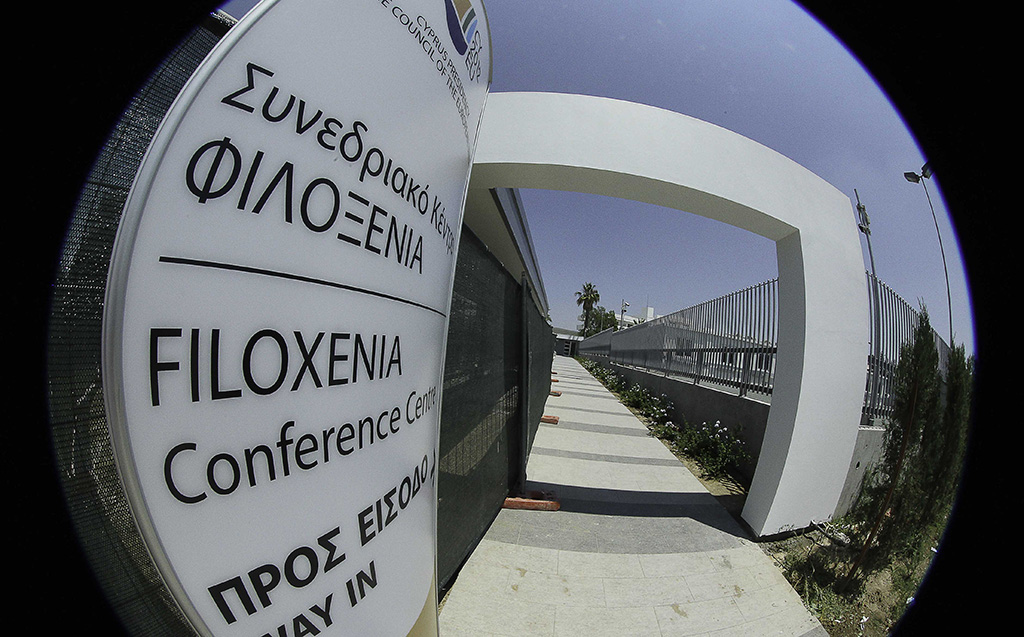Cyprus prepares to host the EU council, with officials promising ‘no wasteful expenses’ under budget checks
Cyprus, one of the European Union’s smallest states, is preparing to take one of its largest roles: the Presidency of the Council of the European Union.
For a country of just over one million people, next year’s task is both a challenge and a moment of symbolism.
The presidency will host around 260 informal meetings and is expected to attract an estimated 62,500 overnight stays in hotels across Cyprus. Because the six-month presidency comes in the first half of next year, officials say this will give a boost to tourism during months when occupancy is generally lower.
“There will be 62,500 overnight stays due to the Cypriot presidency which will directly affect hotels and the tourism sector. It will have a positive effect because it will take place in a period when occupancy is not so high,” Christos Aggelides, general manager of the Pasyxe tourism body, told the Sunday Mail:
“It will be an important moment for all organisers and the hospitality sector, so that the majority of high-level visitors are left absolutely satisfied.”
The deputy ministry for European affairs said that Cyprus will organise the presidency at the Filoxenia conference centre, which will serve as the main venue for meetings. The centre offers five main halls and smaller meeting rooms with capacity for up to 800 participants, along with modern technology infrastructure, interpretation systems meeting EU standards, and an on-site medical unit.
A renovated building, formerly part of the higher hotel institute, will be used as the dedicated press centre for journalists attending the presidency.
“The deputy ministry of tourism is the awarding authority for all tenders concerning accommodation and conference venues beyond the Filoxenia conference centre,” the deputy ministry for European affairs told the Sunday Mail.
When Cyprus takes the presidency in 2026, it is expected to cover most of the costs for meetings held on the island. These costs could include meeting rooms, equipment, security, translation services, and catering.
“Efforts are made to minimise state budget burden while ensuring high-quality services and organisation,” the ministry stressed.
Cyprus also plans to invite companies and organisations to sponsor parts of the presidency to help ease the budget. Some meetings may receive extra funding from the EU or other bodies, though it is understood Cyprus will remain responsible for the main expenses. This approach is part of a new public procedure intended to balance cost control with quality organisation.
Budget transparency and cost control are key concerns.
“Transparency is ensured as in all budgets. We always make sure that there are no wasteful expenses and that basic transparency exists. All funds included in each budget are approved by you,” said Akis Kikas, audit director of the contact committee of the European Court of Auditors.
“The budget of the presidency does not differ from any other budget. As with all public expenses, tenders are issued and all legal procedures are followed. There is no differentiation.”
Regarding the catering, the deputy ministry for European affairs said: “Catering services will reflect a high level of Cypriot hospitality, professionalism, and environmental sustainability. All services will be subject to quality control.”
Luxury vehicles, buses, and minibuses will transport heads of delegations and delegates. Security and traffic management will be coordinated by the relevant authorities, the ministry confirmed.
Speaking to the Sunday Mail, the finance ministry explained that the cost of the country’s upcoming presidency will not significantly burden the state budget. It said that the presidency budget is examined within the broader state budget, complies with the spending limits set by the relevant EU directive and have been found through a reallocation of resources from various ministries, deputy ministries, and public services.
“The amounts for matters relating to the presidency are within the state’s fiscal capacity and do not affect the sustainability of public finances,” the ministry said.
On the question of EU funding, the ministry clarified that, as a rule, council presidencies are funded by national resources rather than the EU. It added that for the Cypriot presidency, a relatively small number of meetings, about 30, will receive partial funding from the EU or other bodies. This support may cover costs such as accommodation, transport, or general conference expenses. The amount and percentage of such funding vary by case.
“The contribution of the European Union to the budget for Cyprus’ presidency of the council is essentially negligible,” the finance ministry stressed.
As Cyprus moves closer to assuming the presidency, it faces a balancing act: ensuring efficient organisation, controlling costs, maintaining transparency, and delivering a strong national and European message.






Click here to change your cookie preferences